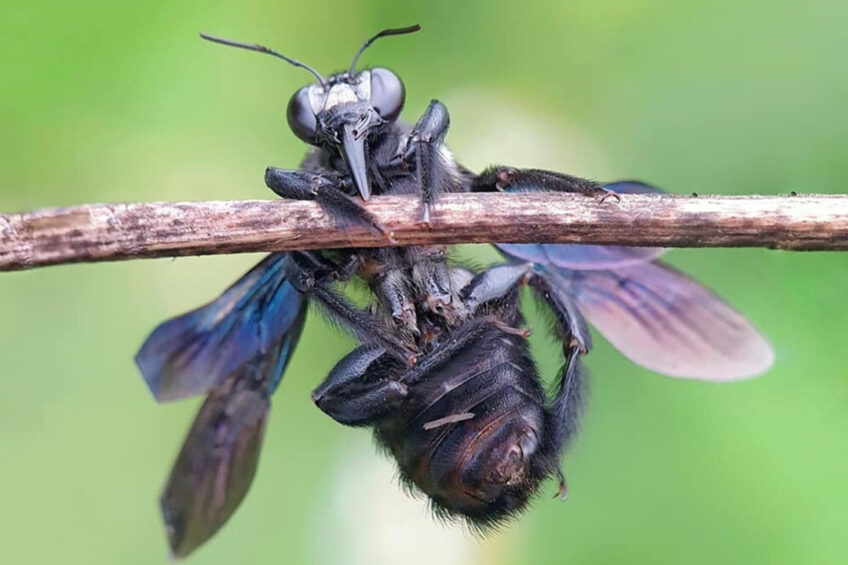Insects continue to draw interest as soya/fishmeal alternative

Insect genetics company, Beta Bugs, believes feeding insect protein to poultry will be a normal choice for UK producers within the next 5 years.
With the industry looking at alternative protein sources to offset the issues around the use of soya, Beta Bugs says insect protein is emerging as a potentially cost-effective source.
The company, which is distributing black soldier fly breeds from its Edinburgh research base, says the protein leads to strong growth while the oil derived from the process at the same time enhances gut health.
Thomas Farrugia, Beta Bugs CEO, told delegates at the recent UK Pig and Poultry Fair that growing insects was similar to running a chicken shed, with the same system of temperature control, feed and water and the environment.
Insects are hugely efficient
Working out of the Roslin Institute, Beta Bugs claims to provide the missing link in the insect protein chain – genetics – developing and distributing black soldier fly breeds. After on-farm delivery, the eggs hatch into larvae and grow rapidly from day 5 to day 14 when they are ready to use. Insects are hugely efficient with up to 8,000% increase in mass.
Simon Lague, business development manager at environmental systems company Inno+, said producers could convert existing poultry units to rear the insects, although they need a humidity level of between 70-80% and a temperature of between 28-30ºC.
Air scrubbers can be used to recover heat and recycle it around the house as well as reduce emissions, he added.
He said the minimum viable level for onsite production was approximately 2,000 tonnes of wet larvae a year (7 tonnes a day) and this concept was currently being put to the test with German farmers with results and next steps due next year.
To swap out 50% of soya would require 1.08 tonnes/day of insects for 100,000 birds. At present, the cost to produce this is 3 times that of soya so it’s probably not efficient at this level at the current time, he added.
But Lague argued there was real interest and growth in the sector was staggering, adding that he felt insect production would go mainstream soon. Frass was also a viable by-product but needed to be sanitised and then dried to 90% for pelleting. Burning for electricity and biogas potential were also being explored.
Lack of legislation
One of the issues frustrating both Farrugia and Lague is the lack of legislation allowing insects to be fed to poultry and pigs in the JUK. Farrugia welcomed recent comments by Tesco CEO, Ken Murphy, who has called for an overhaul of the “old laws”, allowing insects to be used.
Murphy argued that by removing regulatory barriers, insect protein could be used as an alternative feed for animals and strengthen the UK’s food security, reducing reliance on imported soya and fishmeal.
It has asked the government to “set timelines and procedures for updating regulations that hinder scaling up late-stage innovation”.












